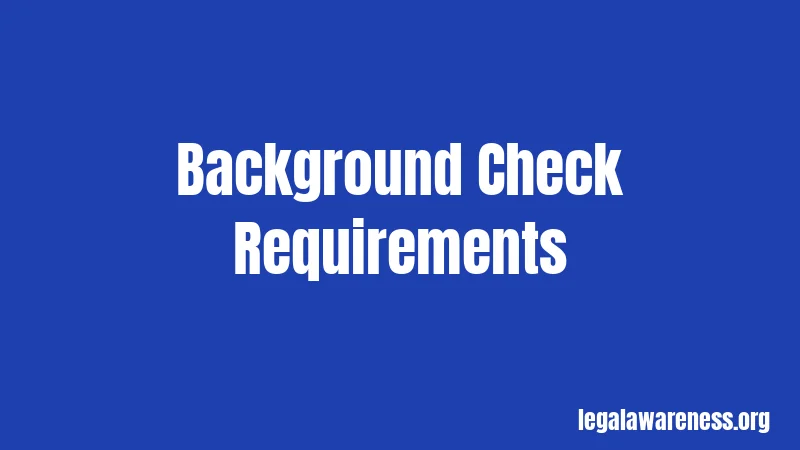Gun Laws in Pennsylvania 2026: What You Need to Know
Pennsylvania has some of the clearest gun laws in the United States. Understanding these rules helps you stay legal and safe. This guide explains the basic requirements, penalties, and recent changes to Pennsylvania gun laws.
What Are Gun Laws?

Gun laws are rules that control who can buy, own, and carry firearms. They exist to keep dangerous weapons away from people who might misuse them. Pennsylvania’s gun laws cover three main areas: buying guns, carrying guns, and using guns for protection.
Pennsylvania follows both state and federal gun laws. State laws often add extra requirements on top of federal rules.
Basic Gun Purchase Laws
Age Requirements
You must be 18 years old to buy a long gun like a rifle or shotgun. You must be 21 years old to buy a handgun. However, people between 18 and 20 can own a handgun if they get it as a gift.
Background Checks
All gun buyers must pass a background check. The Pennsylvania State Police run these checks through their computer system called PICS. The check looks at your criminal history, mental health records, and other factors that might make you ineligible to own a gun.
Most background checks take less than five minutes. The process costs up to $2. If you pass, you get an approval number. If you fail, the sale cannot happen.
What Makes Someone Ineligible
You cannot buy a gun if you have been convicted of certain crimes. This includes felonies and some violent misdemeanors. You also cannot buy a gun if you have been involuntarily committed to a mental health facility.
Drug users and people with three or more DUI convictions in five years cannot buy guns. People who are not legally in the United States also cannot purchase firearms.
Background Check Requirements

For Handguns
All handgun sales require background checks. This applies whether you buy from a gun store or a private person. Private sellers must complete the sale through a licensed dealer or county sheriff’s office.
Family members can give handguns to each other without going through a dealer. This includes transfers between spouses, parents and children, and grandparents and grandchildren.
For Long Guns
Most long gun sales from gun stores require background checks. However, private sales of rifles and shotguns between individuals do not require background checks in Pennsylvania. This creates what some call a “loophole” in the system.
In September 2025, the Pennsylvania House passed a bill requiring background checks on all gun sales. This bill still needs to pass the Senate to become law.
Carrying Guns in Pennsylvania
License to Carry Firearms (LTC)
You need a License to Carry Firearms to carry a concealed gun or to carry any gun in a vehicle. You can get this license from your county sheriff’s office. If you live in Philadelphia, you apply to the police chief instead.
The license costs $20 and lasts for five years. You must be 21 years old to get one. The sheriff has 45 days to approve or deny your application.
Open Carry Rules
Pennsylvania allows open carry for people 18 and older who can legally own guns. You do not need a license to openly carry a gun in most places. However, you do need a license to openly carry in Philadelphia.
A 2025 court ruling said Philadelphia’s ban on open carry without a permit was unconstitutional. However, this ruling is still being challenged in court.
Vehicle Carry
You must have a License to Carry Firearms to have a loaded gun in any vehicle. This applies even if the gun is visible. There was briefly a court ruling that said this law was unconstitutional, but that ruling was stayed in September 2024.
Places Where Guns Are Prohibited

Always Prohibited
You cannot carry guns in schools, courthouses, federal buildings, or prisons. These restrictions apply even if you have a License to Carry Firearms.
Some other places may also be off-limits, including certain government buildings and private properties with posted signs.
Philadelphia Special Rules
Philadelphia has its own rules about guns in city parks and pools. The mayor signed an executive order in 2025 banning guns from these places, even for people with carry permits. This order may be challenged in court as a violation of state preemption laws.
Penalties and Consequences
Carrying Without a License
Carrying a gun without a proper license is a serious crime. If you are otherwise eligible for a license but just don’t have one, it is a first-degree misdemeanor. This can mean up to five years in jail and $10,000 in fines.
If you are not eligible to have a license at all, carrying a gun is a third-degree felony. This can mean up to seven years in prison and $15,000 in fines.
Other Violations
Buying a gun when you are prohibited from doing so is also a felony. Giving a gun to someone you know cannot legally have one is a crime too.
Using a gun in a crime adds extra penalties on top of whatever other charges you face.
Special Circumstances
Self-Defense Laws
Pennsylvania is a “Castle Doctrine” state. This means you can use a gun to defend yourself in your home without trying to escape first. You can also use force to defend yourself anywhere you have a legal right to be.
You can only use deadly force if you believe it is necessary to prevent death, serious injury, kidnapping, or sexual assault.
Hunting and Sporting
Hunters need a Sportsman’s Firearm Permit to carry guns while hunting, fishing, or trapping. This permit costs up to $6 and lasts for five years. You must have a valid hunting or fishing license to get one.
Out-of-State Visitors
Pennsylvania has agreements with many other states to honor their concealed carry permits. However, Pennsylvania only honors permits held by residents of those states. Visitors must be 21 or older and follow Pennsylvania’s laws while here.
Recent Law Changes
2025 Legislative Activity
Several gun-related bills were considered in 2025. The House passed a universal background check bill in September. Bills for “red flag” laws and assault weapon restrictions for people under 21 were also proposed but have not passed.
Some of these bills failed to get enough votes. Others are still being debated. The Republican-controlled Senate is unlikely to pass many of these proposals.
Court Decisions
In 2025, a Pennsylvania court ruled that Philadelphia cannot ban open carry without permits. This decision is being appealed and may not be final.
There were also court cases about gun rights for people between 18 and 20 years old. These cases are still working their way through the courts.
How to Get a License to Carry
Application Process
Go to your county sheriff’s office with a valid ID and two references. Fill out the application form and pay the $20 fee. The sheriff will run a background check and has up to 45 days to decide.
No training or safety course is required, though taking one is recommended.
Required Documents
Bring your Pennsylvania driver’s license or state ID. You will need the names, addresses, and phone numbers of two people who can serve as references. Bring a check or money order for the fee.
Renewal
Your license expires after five years. You can apply to renew it using the same process as getting a new one.
Frequently Asked Questions
Can I buy a gun if I have a misdemeanor conviction?
It depends on the specific conviction. Some misdemeanors, especially violent ones, can disqualify you. Drug-related misdemeanors and domestic violence convictions usually prevent gun ownership.
Do I need a license to buy a gun?
No, you do not need a license to buy a gun in Pennsylvania. You only need a license to carry one concealed or in a vehicle.
Can I carry a gun in my car without a license?
No, you need a License to Carry Firearms to have a loaded gun in any vehicle in Pennsylvania. The gun must be unloaded and secured if you don’t have a license.
What happens if I fail a background check?
If you fail a background check, you cannot buy the gun. You can appeal the decision to the Pennsylvania State Police and then to the Attorney General if needed.
Can non-residents get a Pennsylvania carry license?
Yes, but only if you already have a carry permit from your home state. Some Pennsylvania counties will not issue licenses to non-residents, so check with the local sheriff’s office first.
Final Thoughts
Pennsylvania’s gun laws balance Second Amendment rights with public safety needs. The state requires background checks for handgun sales and licenses for carrying guns. These rules help keep firearms away from people who should not have them.
Always follow both state and federal laws when buying, owning, or carrying firearms. When in doubt, consult with a lawyer who knows Pennsylvania gun laws. Remember that gun laws can change, so stay informed about new developments.
Being a responsible gun owner means knowing and following all applicable laws. This protects you legally and helps keep your community safe.
